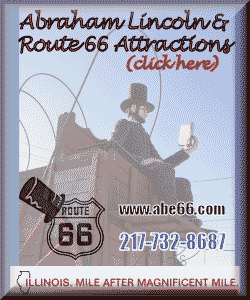|
Thomas Edison and the
Edison Medal
 Nikola Tesla was born in 1856 in Croatia, which
was then part of Yugoslavia. Tesla was a genius in two brand-new
industries -- radio and electricity -- and inventing seemed to run
in his family, as his mother invented household appliances. Nikola Tesla was born in 1856 in Croatia, which
was then part of Yugoslavia. Tesla was a genius in two brand-new
industries -- radio and electricity -- and inventing seemed to run
in his family, as his mother invented household appliances.
Tesla went to work for Thomas Edison for a year in 1883, but he
and Edison had a long-running feud over which type of electrical
current was superior -- Edison's DC (direct current) or Tesla's AC
(alternating current). Edison had invested heavily in his DC
current, and he did his best to discredit Tesla's work. He even went
so far as electrocuting animals -- ranging in size from a dog to an
elephant -- to try to convince the public that Tesla's AC
electricity was more dangerous than his own DC power.

Tesla's AC eventually won out over Edison's DC, and he was
awarded the prestigious Edison Medal in 1917. Despite winning this
award, he never received the proper recognition or respect during
his lifetime. He did have an award named for him, though. The Nikola
Tesla Award has been presented by the Institute of Electrical
Engineers annually since 1976.
Alfred Nobel and the Nobel Peace Prize
Alfred Nobel was a Swedish chemist and inventor born in 1833, the
same year that his father went bankrupt. His father, also an
inventor, left home to escape debtor's prison. After one of Alfred's
factories blew up in 1864, killing five people, including his
younger brother, he was tagged with the unfortunate nickname of "The
Merchant of Death." Another factory blew up two years later.

The irony of Nobel's story is that the invention that funded the
Nobel Prizes that Alfred had established was… dynamite. Alfred, who
never married, was a pacifist who didn't want a legacy associated
with death. After he died in 1896, nearly all of his wealth went to
the establishment of the five Nobel Prizes.
Nobel was able to secure a positive legacy for himself with the
establishment of the awards that bear his name. The awards are
divided into five classifications: physics; chemistry; physiology
and medicine; literature; and peace.
[to top of second column] |

Rube Goldberg and the Reuben Award
Rube Goldberg went to college to fulfill his father's ambition of
his son becoming an engineer. When Rube realized that an engineering
career wasn't what he wanted, he turned to what he really loved
doing -- drawing. He put his engineering background to good use in
his new career, as the drawings of his fictional character,
Professor Lucifer Butts, made him a celebrity and helped assure his
place in history. Goldberg earned a Pulitzer Prize in 1948.
The irony of the story is that Rube, whose name is synonymous
with inventions, never invented anything himself. Then what is a
"Rube Goldberg invention"?
It's a drawing of an elaborate scheme that shows 10 or more steps
to accomplish a simple task, and the award named in Rube Goldberg's
honor is the National Cartoonists Society's Reuben Award. Goldberg
was the society's first president, and the award is given out
annually to the year's top cartoonist. Past winners of the Reuben
Award include the cartoonists behind Dilbert, Calvin and Hobbes,
Garfield, Peanuts, Blondie, Hagar the Horrible, and Beetle Bailey.

There are also a number of Rube Goldberg machine contests that
are conducted each year, usually among engineering students, in
which the challenge is to design a machine that uses the most
complex process to complete a simple task.
The images of Edison, Tesla, Nobel and Goldberg have all appeared
on postage stamps, although Edison's first stamp could not contain
his image because of the U.S. Postal Service's policy of not showing
living people on stamps.
[Text from file received
from Paul Niemann]
Paul Niemann may be reached at
niemann7@aol.com.
Copyright Paul Niemann 2007
(Other
columns)
 |